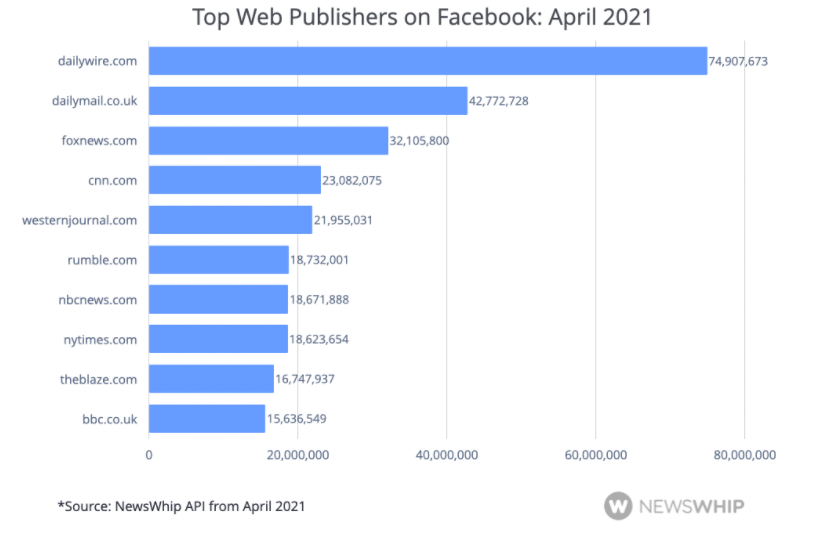Yesterday afternoon, I had the pleasure of joining my friends Mona Charen, Linda Chavez, Damon Linker, and Bill Galston on Mona’s “Beg to Differ” podcast. The lead topic was Liz Cheney and the likely imminent loss of her position in GOP House leadership. The question arose: “Is Cheney’s plight largely the result of a failure of the GOP elite—and their refusal to stand up to Donald Trump—or a crisis in the grassroots?”
My answer on the podcast was ‘both.’ Just as in the 2016 primary, elites are failing to stand up to Trump, and the masses are wrongly embracing him. I bring up the primary because (just like then) the GOP has choices. It’s not “Trump or Clinton” or “Trump or Biden.” It’s “Trump or the dozens and dozens (hundreds and hundreds?) of better women and men who could lead the party.” Yet by the tens of millions, Republican citizens still stand and shout, “Trump!”
But now, upon reflection, I’d like to revise and extend my response. Yes, there is and has been an elite failure to stand up to a former president who is still ranting that the 2020 election was “the Big Lie.” Yes, many members of that elite have stood shamefully silent as they watched a few brave Republicans—men like Mitt Romney and women like Liz Cheney—directly confront the former president. They’ve been shamefully silent even when they’ve agreed that Trump was unfit.
While there’s no true justification for that silence (one should speak the truth even when it’s hard), there is a reason. And the reason rests with the Republican grassroots. They are getting the party they demand, and heaven help anyone who stands in their way. Just ask virtually any elected Republican. In a safe red seat (which is most red seats), asking them to stand against Trump—even now—is like asking them to step aside and be replaced by their district’s version of Lauren Boebert or Marjorie Taylor Greene or Matt Gaetz.
Put simply, the Republican base is often unhinged, increasingly radicalized, and intolerant of dissent. The evidence is just everywhere. Are state parties speaking openly about secession? Yep. Are election “auditors” in Arizona really looking for bamboo fibers on ballots to investigate a wild conspiracy theory? Yep. Are Michigan state house Republicans welcoming Naomi Wolf’s thoughts on “vaccine passports”? Yep. Does Lin Wood, lunatic conspiracy theorist, really have a whopping 846,000 followers on the messaging app Telegram? He does indeed.
Moreover, there is an absolute insatiable desire online for giant amounts of own-the-libs content. For all the talk of Big Tech tyranny, on the conservative platform of choice, Facebook, the GOP base makes its media preferences known. Which sites were the top publishers on Facebook in April?


I’m detecting a trend. What does February look like?

This content is not a top-down imposition on Republican America. It’s the result of a bottom-up demand, and that culture (and demand) are so strong that it is presently well beyond the reach of any elite control. Again, this does not mean that GOP politicians (or right-wing infotainment celebrities) aren’t responsible for their words and shouldn’t resist conspiracies and lies. But it does mean that when or if they do, they almost immediately lose their voice or influence in the Republican base.
If you doubt me, ask Mitt Romney. Ask Jeff Flake. Ask Bob Corker. Ask Liz Cheney. Heck, I was talking to an extremely plugged-in local activist here in Franklin, Tennessee who told me that many members of the grassroots were furious at—wait for it—Marsha Blackburn for insufficient dedication to Trump.
I know of what I speak. The New York Times put together a fascinating little website that tells you the political composition of your neighborhood. Friends, I live in a Republican bubble. (I plugged in all my adult addresses, and I’ve lived in either a blue or red bubble my whole adult life. I need a change.)

This does not mean that I’m surrounded by radicals. I’m surrounded mainly by good folks who don’t pay much attention to politics and who focus their energies elsewhere—on family, on work, and (properly) on SEC football. But there is a general truism that the more a person here focuses on GOP politics, the more radical they become. The people who care the most and focus the most on politics are often (again, not always!) far more conversant in conspiracies and liberal outrages than they are in policy or ideas.
The result—from a politician’s perspective—is feedback from engaged constituents that constantly, relentlessly demands more alarm, more fury, and more allegiance to Trump. The same dynamic applies in right-wing infotainment. Sure, the online critics attack conspiracy content, but the people who watch, who pay your paycheck, demand more, more, more.
Smart politicians know exactly how to move up the food chain. Feed the beast, even when the beast is misguided and wrong. For example, here’s Elise Stefanik, angling to take Liz Cheney’s spot:
Under no circumstances is a Twitter ban or suspension “unconstitutional.” This is civics 101. But attempting to apply the Constitution to social media is an online cottage industry in parts of the right, and Stefanik knows exactly how to play this game.
One reason why we spend so much time thinking and talking about elites is that we often hope and pray that a better elite can bring significant, rapid change—to yank the right out of its current malaise sooner rather than later. At present, however, there is no obvious path for speedy, top-down change. There simply isn’t an active market for the necessary message.
In fact, in my experience, the everyday Republican’s response to the Trumpification of the right is to either go along, passively, or simply check out—to join the bipartisan “exhausted majority” of Americans, that group of fellow citizens who share the following characteristics:
-
They are fed up with the polarization plaguing American government and society.
-
They are often forgotten in the public discourse, overlooked because their voices are seldom heard.
-
They are flexible in their views, willing to endorse different policies according to the precise situation rather than sticking ideologically to a single set of beliefs.
-
They believe we can find common ground.
So far their response has not been to fight as hard as Trump’s grassroots to restore the right. The costs are simply too great. It is simply too painful. Think about it—if you had to choose between a relationship with your own father and mother (or your best friends) and a political fight over Donald Trump, which would you choose? You’d choose family. You’d choose friends. Most people choose family and friends, and in their individual situation, they’re right to do so.
The collective impact of those proper individual choices, however, yields the political stage to those who are willing to throw it all away for Trump, who will condition their relationships on support for Trump, and who will inflict pain on anyone who disagrees.
That’s the reality. It’s not a reality that justifies elite lies or elite pandering. But it’s the reality nonetheless, and we can’t properly diagnose what ails the GOP unless we’re honest about the composition of the GOP. At the grassroots, radicals run the ship, and until there’s a change of heart in the grassroots, the timid GOP Congress might be the best case scenario. The next most likely alternative looks a lot like Matt Gaetz.
One last thing …
There was another SpaceX Starship flight test yesterday, and if you missed it, you need to see it. The politics of the Martian Congressional Republic might be better and more healthy than the politics of the United States of America, but we have to get to Mars before there is politics on Mars. We’re one step closer. Watch:








Please note that we at The Dispatch hold ourselves, our work, and our commenters to a higher standard than other places on the internet. We welcome comments that foster genuine debate or discussion—including comments critical of us or our work—but responses that include ad hominem attacks on fellow Dispatch members or are intended to stoke fear and anger may be moderated.
You are currently using a limited time guest pass and do not have access to commenting. Consider subscribing to join the conversation.
With your membership, you only have the ability to comment on The Morning Dispatch articles. Consider upgrading to join the conversation everywhere.